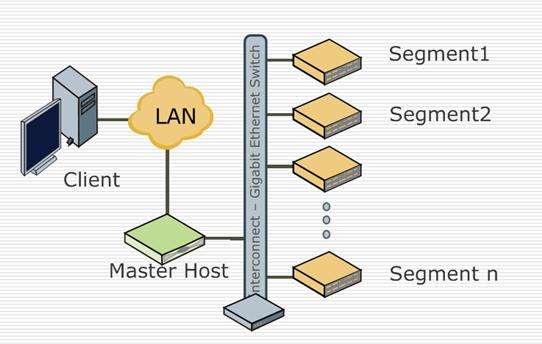
1.env
lsf基本环境:
[vagrant@lsf1 ~]$ bhosts
HOST_NAME STATUS JL/U MAX NJOBS RUN SSUSP USUSP RSV
lsf1 ok - 1 0 0 0 0 0
lsf2 ok - 1 0 0 0 0 0
lsf3 ok - 2 0 0 0 0 0
lsf4 ok - 1 0 0 0 0 0
[vagrant@lsf1 ~]$ lsid
IBM Platform LSF Standard 9.1.3.0, Jul 04 2014
Copyright IBM Corp. 1992, 2014. All rights reserved.
US Government Users Restricted Rights - Use, duplication or disclosure restricted by GSA ADP Schedule Contract with IBM Corp.
My cluster name is cluster1
My master name is lsf1
[vagrant@lsf1 ~]$ cat /etc/hosts
...
192.168.56.171 lsf1
192.168.56.172 lsf2
192.168.56.173 lsf3
192.168.56.174 lsf4
# 共享目录:/vagrant
[vagrant@lsf1 test_home]$ df -h
Filesystem Size Used Avail Use% Mounted on
...
none 239G 182G 57G 77% /vagrant
mpich基本环境:4个节点都安装
[vagrant@lsf1 test_home]$ rpm -qa |grep mpich
mpich-autoload-3.1-4.fc22.x86_64
mpich-debuginfo-3.1-4.fc22.x86_64
mpich-devel-3.1-4.fc22.x86_64
mpich-3.1-4.fc22.x86_64
# export PATH
[vagrant@lsf1 test_home]$ export PATH=/usr/lib64/mpich/bin:$PATH
mpi4py环境:4个节点都安装好mpi4py
[vagrant@lsf1 test_home]$ python -m mpi4py
No path specified for execution
usage: python -m mpi4py [options] <pyfile> [arg] ...
or: python -m mpi4py [options] -m <mod> [arg] ...
or: python -m mpi4py [options] -c <cmd> [arg] ...
or: python -m mpi4py [options] - [arg] ...
Try `python -m mpi4py -h` for more information.
2.test
使用python的mpi4py库,编写一个简单的脚本:
[vagrant@lsf1 test_home]$ cat test.py
from mpi4py import MPI
import os,time
comm= MPI.COMM_WORLD
comm_rank = comm.Get_rank()
comm_size = comm.Get_size()
time.sleep(10)
hostname = os.popen('hostname')
print "I am the %d process of %d processes in host: %s" % (comm_rank,comm_size,hostname.read())
使用lsf来提交执行这个脚本,如下所示:
[vagrant@lsf1 test_home]$ bsub -n 4 -o 1.log 'mpiexec python /vagrant/test_home/test.py'
Job <343> is submitted to default queue <normal>.
# -n 4: 4 core
# -o 输出日志
# mpiexec python /vagrant/test_home/test.py 使用mpiexec执行脚本
[vagrant@lsf1 test_home]$ cat 1.log
Sender: LSF System <vagrant@lsf3>
Subject: Job 343: <mpiexec python /vagrant/test_home/test.py> in cluster <cluster1> Done
Job <mpiexec python /vagrant/test_home/test.py> was submitted from host <lsf1> by user <vagrant> in cluster <cluster1>.
Job was executed on host(s) <2*lsf3>, in queue <normal>, as user <vagrant> in cluster <cluster1>.
<1*lsf2>
<1*lsf4>
# 可见分布在3个host上执行,其中lsf3两个core,2和4个1个core
</home/vagrant> was used as the home directory.
</vagrant/test_home> was used as the working directory.
Started at Sat Mar 31 11:54:50 2018
Results reported on Sat Mar 31 11:55:02 2018
# 全部用时12s
Your job looked like:
------------------------------------------------------------
# LSBATCH: User input
mpiexec python /vagrant/test_home/test.py
------------------------------------------------------------
Successfully completed.
Resource usage summary:
CPU time : 0.78 sec.
Max Memory : 17 MB
Total Requested Memory : -
Delta Memory : -
The output (if any) follows:
I am the 1 process of 4 processes in host: lsf3
I am the 3 process of 4 processes in host: lsf4
I am the 2 process of 4 processes in host: lsf2
I am the 0 process of 4 processes in host: lsf3
# 脚本居然真的并行执行了...